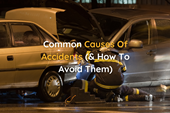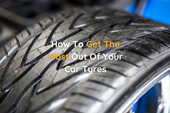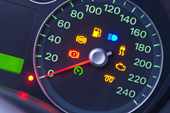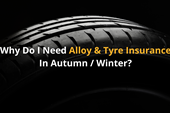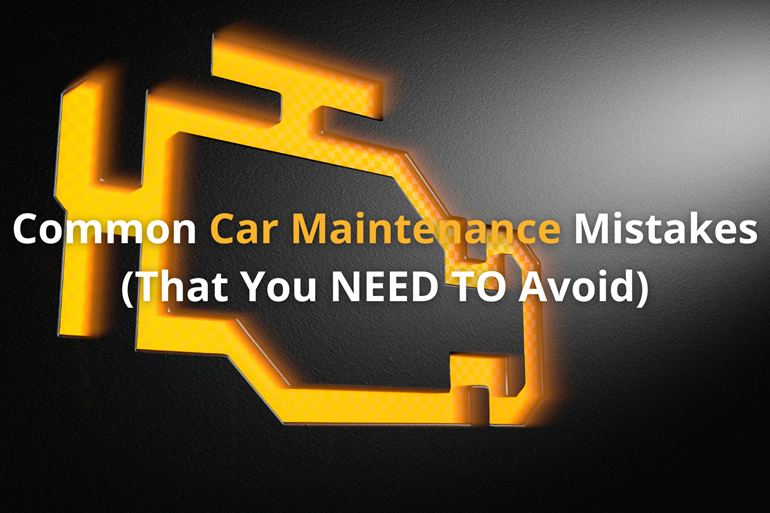
Common Car Maintenence Mistakes (That You NEED To Avoid)
Here's some of the most common mistakes people make when it comes to car maintenance. Avoid these and you'll avoid long term, costly repairs and potential breakdowns.
Keep Your Car In Top Condition & Save In The Long Run By Avoiding These Common Maintenance Mistakes…
If you’ve just bought a new car the chances are you’re planning to keep it in pristine condition, following a water-tight maintenance routine. Sadly, this often falls by the wayside as the novelty of car ownership wears off.
Coupling waning excitement with the highs and lows of life and its expenses often means you’ll be tempted (or obliged) to cut corners when it comes to regular checks on your car. However, this will most likely result in more costs over time, as small issues which could be rectified quickly turn into bigger, expensive problems.
In this article, we’re examining the most common car maintenance mistakes that could (or more probably will) cost you money. First though, let’s cover some of the basics.
Why Is Car Maintenance Important?
Keeping your car regularly maintained ensures maximum safety, as the brakes, engine, steering and suspension can all be working at their best. What’s more, during maintenance your mechanic can often pick up on underlying issues which could otherwise go unnoticed.
An efficiently maintained car tends to run more smoothly too, meaning more miles per gallon and improved driving performance; not to mention a better resale value overall (which is why we included it our Maintaining Your Car’s Resale Value guide).
Can Car Maintenance Be Done At Home?
There are plenty of maintenance jobs you can do at home, including fluid changes, filters and spark plugs; you can even work on brake pads and discs if you have time and knowledge. However, it’s worth weighing up a few factors before you go ahead:
- Do You Have The Know How? It’s always good to give things a go, as it’s a great way to learn. However, be sure you feel comfortable undertaking any job before you start, otherwise, you could be stuck later and lose confidence.
- Do You Have The Equipment? Whilst most jobs can be done using basic tools, others may require a lift, electrical equipment or specific, specialist sockets. Understanding what tools you may need could determine whether the job is worthwhile doing yourself.
- Do You Have The Time? As mechanics are doing the same jobs regularly, they’ll be much quicker than you at basic maintenance. That’s not always a dealbreaker, but think about whether you have the day, weekend, or week to put aside to undertake certain car tasks.
Common Car Maintenance Mistakes
Ignoring Dashboard Lights
Engine lights are there for a reason! Ignoring them will inevitably lead to greater expense and potentially dangerous situations. It’s best to have them checked as soon as possible as they’re usually signalling minor issues which can be fixed quickly and relatively cheaply.
At a glance, here’s a general idea of what each dashboard light signifies:
Engine Management Light
The engine management light can be the most daunting of all the dashboard lights, signalling anything from broken sensors to emissions issues and damaged catalytic converters.
Generally, the engine management light will be accompanied by driving issues such as jerking, loss of power or higher revs.
Our advice is to visit a mechanic in this instance as they can often ‘plug’ cars in and detect issues using engine fault codes.
Brake Warning Light
This light will usually come on during driving if your brake fluid is low, something which can be quickly rectified.
Sometimes, a brake warning light can signal the need for new brake pads, discs or both.
Temperature Light
The engine temperate light, sometimes known as the ‘coolant’ light is something you should take heed of straight away, as it signals your engine overheating.
Ideally, you’ll want to pull over immediately when driving (if it’s safe to do so) if this light comes on, otherwise you could cause serious long term damage such as damaged engine blocks and head gaskets; all of which are extremely costly to repair.
Oil Pressure Warning Light
Another ‘biggie’, driving with your oil pressure light showing, which signals low levels of oil or worse; a leak, can result in major long term damage.
Often, you’ll ‘feel’ a change in driving if your oil is low, such as a louder engine and poorer performance.
Tyre Pressure Monitoring System (TPMS)
Modern cars are fitted with a tyre pressure sensor which highlights tyres under the manufacturers pressure levels.
If this is the case, you should still be fine to drive a short distance and inflate tyres at the nearest garage or petrol station.
Ignoring Tyre Pressures
As we’ve just covered, some cars have a TPMS which will let you know if your tyres are low on pressure. If you have an older car then it may not have these sensors, which means you’ll need to check (by eye) on a regular basis.
Either way, ignoring low pressure, or worse; flat tyres, can prove costly and dangerous, leading to bigger problems such as punctures or even sidewall blowouts.
Check and inflate your tyres on a regular basis, following your manufacturers handbook for guidance on PSI or Bar pressure levels. Most cars can operate around 32psi, but we recommend checking your cars specific needs first.
Neglecting Tyre Changes
Driving with worn tyres past the legal limit is incredibly dangerous. At best, you’re running the risk of a police stop and fine, at worst; you could be involved in a serious accident.
Aside from the obvious issues such as reduced grip and longer breaking distances (as your vehicle effectively ‘slides’ further along the road), worn tires can pose a blowout risk too, something which could lead to greater, more expensive mechanical problems further down the line.
In the UK the minimum legal tread limit for tyres is 1.6mm, across the middle three-quarters of the tyre, throughout the entire circumference. Driving with anything less could result in a fine of up to £2500 and 3 points on your license.

Windscreen Chips
On the face of it a small windscreen chip from stones or debris look like they could be left for ages. However, they will often grow over time, or in some cases, cause sudden cracking or shattering right across the windscreen; something that’s pretty dangerous; especially if your driving.
Get small chips repaired as soon as possible to prevent future damage. In some cases, these can be covered by your insurance.
Skipping Oil Changes
Oil keeps your engine lubricated and running at it’s best. Without it, your car will often run at higher temperatures, with lower performance, with greater friction and more wear on moving parts.
Over time, running your car with old oil, or low oil levels will cause lasting damage such as piston damage. In the short term, you’ll see less fuel economy and a higher risk of mechanical failure.
Keep your oil topped up and change it regularly to ensure your car is working at optimum performance. These days, newer cars don’t need an oil change as often as they used to, with some only needing a change every 8000 miles; as always, check your manafucaturers handbook for more details.
Skipping Services
Regular servicing helps your car run smoothly, reduces the eventuality of major faults and helps improve your cars residual value, so neglecting them is a negative on all fronts.
These days you don’t need to use a main dealer for your service. Specialists garages or your local, reputable mechanic should have all the right tools, diagnostics and parts needed to effectively service your car.
If you’re confident, you can do your own servicing at home with basic tools. However, be sure to check your warranty and insurance policy first as this may be a stipulation that affects them.
Ignoring Noises
It can be tempting to turn the radio up a little when a suspect noise appears. It goes without saying thought that that’s a surefire way of spending money in the long run.
Common engine noises, suspension knocks or wearing brakes can all be heard; before they become a big problem so get them looked at as soon as you can.
Driving With An Overheating Engine
As we covered earlier in the dashboard lights section, driving with an overheating engine is one of the quickest ways to ruin your engine; causing damage like warping and cracking of the engine block or cylinder head.
If your engine is overheating, even by a small amount, you’ll definitely save money by stopping immediately and getting the situation fixed as soon as possible.
If you notice your car is running hot, contact your garage and have it looked at immediately. Issues can range from broken hosing through to radiator issues.
Poor Exterior Maintenance
Not attending to scratches or scapes in a timely manner could result in rust or long term bodywork damage; be sure to touch up any scratches as soon as possible.
‘Smart Repair’, or scratch & dent insurance is a good option for smaller bodywork damage, where a technician can come out and repair your vehicle without affecting your regular insurance no claims bonus, something to consider if you feel you’ll overlook maintaining the exterior of your car.
Our Final Word
With today’s busy lifestyle, not to mention a squeeze on finances, it can be tempting to push regular car maintenance back a few days or weeks here and there. As we’ve covered though, this almost certainly results in bigger bills later on.
Whilst you can’t plan for every eventuality, you can plan ahead with some maintenance areas, such as dealership service plans, tyre and alloy insurance and scratch and dent insurance, all of which could minimise your long term risk or help you spread your maintenance costs.
Ultimately, all drivers want to feel safe in their car, not to mention proud of their vehicle that’s a pleasure to drive, so regular maintenance is a must.
If you have any questions about this article, maintenance or anything in general, please don’t hesitate to get in touch! DM Luke using our social media channels and he’ll be happy to help.
Don’t forget to share this with your network.




